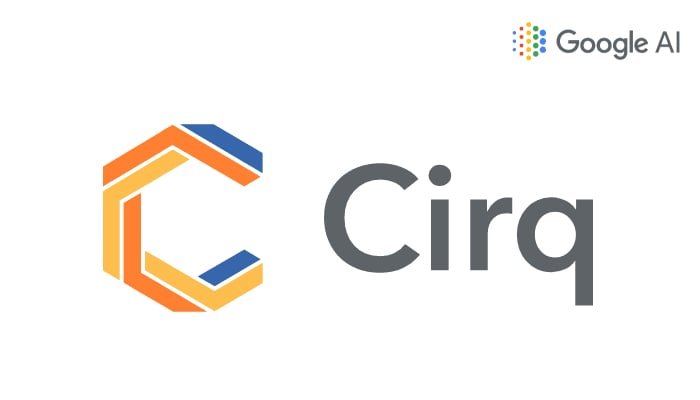The space race of the cold war saw
the US and Russia develop a wide range of aerospace technologies. But a
new race is about to begin, mostly among corporations, and the winner
will unlock the power of the quantum computing realm.
The Security Rapture
In the past 30 years, computing has given rise to many key technologies, most importantly the Internet, which have had a massive impact on the global economy. Banks can be accessed remotely, shopping can be done using a phone, and stocks can be traded at the push of a button.But sending messages to perform such tasks must be encrypted to prevent attackers from obtaining sensitive information. As a result, many different forms of cryptography have been developed to encrypt messages that would take billions of years for a computer to attack. Prime numbers are key to modern cryptography systems due to their difficulty in calculation and so prime numbers have to be found as opposed to being calculated (i.e., there is no general formula for predicting prime numbers).

Modern security relies on prime numbers being difficult to find.
While there have always been vulnerabilities in computing, we're about to enter a new era of dealing with cryptological threats. Practical quantum computers are very close to becoming a reality.
Quantum computers, unlike traditional computers, utilize quantum effects to perform calculations on quantum states which can perform multiple calculations simultaneously. In fact, 30 qubits alone can perform 1 billion calculations simultaneously. With the ability to perform such calculations, quantum computers could trivially solve modern cryptographic systems, partly because finding very large prime numbers would be much easier.
Quantum computers are already in existence but they are not yet practical machines—each utilizes a relatively small number of qubits and they're mainly for scientific research. But when quantum computers become more common, emphasis on quantum-level security will be of paramount importance.
This is why the race among corporations to build practical quantum computers (and security measures against them) has begun. Here's a look at some recent initiatives surrounding the issue of quantum computing.
Programming Quantum Computers
Even though current quantum computer systems are not yet practical, many are already trying to tackle the issue of how to appropriately program them.Traditional computers (those based on good old binary), are linear systems and run instructions one by one which makes creating and following programs easy. A quantum computer, however, is more of a mathematical machine whereby complex quantum algorithms are configured using quantum gates and then quantum data fed into the system n number of times to produce a result.
However, tech companies have started to think about how quantum computers can actually be used.
Microsoft’s new language, Q#, is a quantum computer language designed to run on classical computers so that users can develop quantum projects in the Visual Studio environment. Microsoft has also released four tutorials, called “Katas”, that teach the basics of quantum computing. Each tutorial has examples and outputs that allow the user to test their quantum programs to see if they are correct. The four tutorials cover basic quantum gates, superposition, measurements, and the Deutsch-Jozsa algorithm.
Meanwhile, Google has recently announced Cirq, an open-source framework for developing quantum algorithms and programs on NISQ computers (Noisy Intermediate Scale Quantum). While currently, quantum algorithms developed do not run on a real quantum computer, they do provide a framework for development. Like Q#, Cirq can be downloaded via GitHub but is coded in Python, which allows development of quantum algorithms on most platforms.

Interestingly, Cirq allows the creation of quantum circuits and gates by simulating molecules and properties of materials—but, as they are simulations, performing large quantum calculations is impossible (which is to say that security systems are theoretically safe for now).
An Incubator for Quantum Development
IBM, one of the companies on the quantum frontlines, has created a network called the “IBM Q Network”. Its main aim is to bring leading companies together to help push the boundaries of quantum computing technologies and explore practical applications for business and science. In their own words, the goal of the program is to "cut through the hype and focus on the present state of quantum computing and how organizations, and developers can prepare for the future."Who are the companies in this program and where are they from? A quick bit of research shows that they are companies mainly situated in the West such as Zapta Computing (Cambridge), Strangeworks (Austin), and QC Ware (Palo Alto).
Legislators Attempt to Keep Up
This quantum race is also seeing legislation in law. Last month, Texas congressman Will Hurd warning of a computing threat from competitors such as China and Russia.In response to this threat, Hurd has highlighted a proposal in Congress, the National Quantum Initiative Act, that would put position the US as a leader in Quantum Information Science. Introduced by fellow Texan, U.S. House Science, Space, and Technology Committee Chairman Lamar Smith, the National Quantum Initiative Act aims to do things like support quantum development on US soil, identify and address "research gaps" and employment issues for American quantum research, and establish a National Quantum Coordination Office to organize these efforts.
Conclusion
The era of quantum computing is approaching. When practical quantum computers arrive, current cryptographic methods will not be able to protect sensitive data.But who will get the technology first? Will the power be used to exploit banks and the stock market? Or will it be used to immediately create new cryptographic solutions? The reality is probably a combination of the two—quantum computing can and will be used for good and for ill.
What would you like to learn about when it comes to quantum computers? Let us know in the comments below.







No comments:
Post a Comment